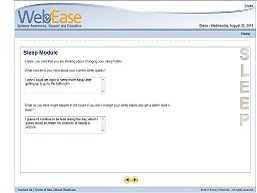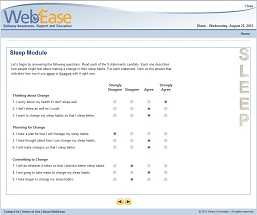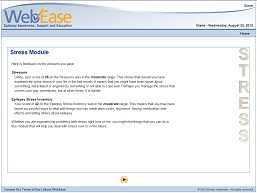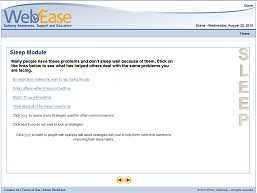PRC Online Health Program, WebEase©, on the Leading Edge of Technology
November 2012

Dr. DiIorio holding a vase presented to her at a gathering marking her retirement and the launch of WebEase.
Emory University Prevention Research Center (PRC) researcher Colleen DiIorio, PhD, has retired happy.
She had delayed her retirement as a professor at Emory University in Atlanta so she could help finalize the launch of WebEase© (Web Epilepsy, Awareness, Support and Education), an epilepsy self-management program that she and Emory PRC colleagues developed under funding from CDC’s Epilepsy Program. It’s the first-ever evidence-based online program for epilepsy self-management.
"WebEase is special because it’s going to have a life after me," Dr. DiIorio said at a gathering in June 2012 to celebrate both her retirement and the launch of WebEase. That “life” is courtesy of the Epilepsy Foundation, which licensed WebEase and placed it on the foundation website, ensuring that people with epilepsy will have easy and free access.
Via an Internet video connection at the gathering, Cheri Sanzi, senior director of public awareness and community services at the Epilepsy Foundation, called WebEase a "labor of love" and said the foundation was happy and excited to promote and disseminate the program.
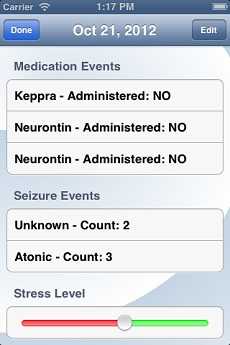
A WebEase application for mobile devices is under development. Emory University plans to use the application as a prototype for future Emory mobile applications supporting self-management of other disorders.
Epilepsy affects about two million people in the United States and 50 million people worldwide. The disorder is marked by recurring seizures, which may be triggered by various factors including missed medication, poor sleep, and stress. One of the pioneers in epilepsy self-management, Dr. DiIorio, along with colleagues, conducted research showing that WebEase can improve medication adherence, stress management, and sleep quality, as well as confidence and social support, among people with epilepsy.1
WebEase consists of a personal journal in which users track seizures, medication, and stress and sleep patterns, plus three interactive modules on medication, stress, and sleep. The modules provide pertinent information, videos that depict people with epilepsy recounting how they deal with the disorder, and strategies to help users manage their condition and set goals. Each module queries users, employing motivational interviewing techniques, about how they are managing their epilepsy and about what they might like to change or are already changing. Based upon the answers, WebEase assesses the user’s stage of readiness to adopt healthier behaviors, gauges their confidence level to do so, and provides automated, personalized feedback.
WebEase is designed as a self-management program, rather than as a course of directives or instructions, because, Dr. DiIorio said, in general, people don’t like being told what to do. "It’s more effective when people figure out for themselves what works for them," she said.
Many people with epilepsy cannot drive, Dr. DiIorio noted, so for them, WebEase is more accessible than traditional group or one-on-one epilepsy management programs that require travel to a provider. And now researchers are turning WebEase into an application that people will be able to use on smart phones and tablets, creating greater accessibility to timely feedback.
“Mobile health is going to be the next big thing in computer technology,” Dr. DiIorio said, adding that just as social media evolved as more and more people used it, so it will be with emerging health applications for mobile devices. “WebEase is one of these early mobile health programs,” she said. “And it’s exciting to think how it will evolve as people use it and provide feedback.”
1DiIorio C, Bamps Y, Escoffery C, Reisinger-Walker E (2011). Results of a research study evaluating WebEase, an online epilepsy self-management program. Epilepsy & Behavior, 22(3): 469-474.
|
WebEase uses motivational interviewing techniques in querying users about how they manage seizure triggers. |
WebEase queries users to assess their readiness to make changes in how they manage their epilepsy. Enlarge picture |
|
WebEase helps users understand how stress and other potential triggers might affect their epilepsy. Enlarge picture |
WebEase presents epilepsy management strategies based upon users’ answers to queries. Enlarge picture |
- Page last reviewed: September 22, 2016
- Page last updated: September 22, 2016
- Content source:


 ShareCompartir
ShareCompartir
